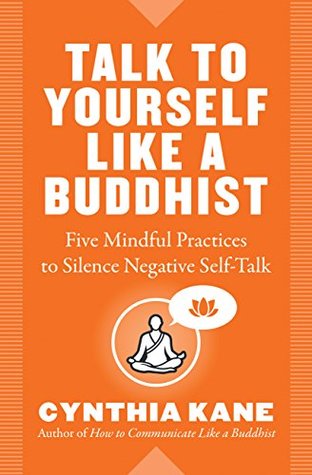More on this book
Kindle Notes & Highlights
by
Cynthia Kane
Read between
October 6, 2021 - December 30, 2022
(we mistake many of our judgments for facts!).
When we have balance, we can see things with clarity. When we are out of balance, our vision and perception become clouded, and this includes how we see ourselves.
The truth is, we often speak to ourselves in subtle negative ways without even understanding that we're doing it. As a result, much of our internal negative self-talk slides past our radar without us realizing the damage we are doing to ourselves in the process.
From a Buddhist perspective, negative self-talk can be defined as language you use when you communicate with yourself that is unkind, unhelpful, or untrue. It's when you speak to yourself in a way that diminishes your very being.
Negative self-talk occurs when you speak to yourself in thought, word, or action in a way that leaves you feeling sad, upset, or mad at yourself. In this way, negative self-talk occurs anytime we address ourselves with language that creates suffering in our minds.
This story serves as a good reminder that our assumptions are more often reflective of what we think of ourselves than what anyone else thinks about us, and when we make assumptions, even small ones, they can fan the flames of our negative self-talk.
The goal of listening is to discover where and how you are speaking negatively to yourself, which, as we have seen, can be subtle or overt. I've said this before but it bears repeating: many of us are so used to this hurtful way of communicating with ourselves that we may not even notice when we go into negative self-talk. That is why the practice of listening to yourself is so important: you cannot change what you do not observe.
Feeling some detachment from your self-talk gives you the opportunity to ask questions, specifically: What judgment am I making? What story am I telling myself as a result of this judgment? What do I know to be true?
has as much stake in your own mental well-being as you do,
Through mindful listening, you may actually find that in some cases, many of the negative emotions you are feeling are the direct result of the negative self-talk, or even when your feelings are not the result of your own internal monologue, it's at these moments that negative self-talk is prone to rise and add fuel to the already burning fire of your suffering.
I don't accuse myself or beat myself up for making the statement, I just observe that it was negative. In this way, naming your negative self-talk will help you not attach yourself to it.
While we all have proud moments, we also carry painful ones—the experiences where we felt unworthiness, guilt, or shame. If we don't consciously deal with the effects of these experiences, we will carry this emotional pain with us, allowing it to form lasting beliefs about who we think we are.
To be clear, the problem is not that we enjoy movies, TV, or advertisements but that we use these fictitious stories as a ruler to judge real-life situations against, often without knowing we are doing it. Left unexplored, society's ideas of what it means to be happy, healthy, or fulfilled can generate lots of judgment and negative self-talk when we don't measure up to these impossible standards.
You see, a fundamental tenet of Buddhism is that you are enough, you have always been enough, and you will always be enough, exactly as you are.
By definition, judgments are not facts. They are merely perceptions colored by other influencers.
Our desire to tell stories about the events we witness is one of the strongest habits of the human mind. Rather than just look at and deal with the facts as they are, our tendency is to create complex narratives around the situations that we perceive. Like the man who was shot by the arrow, we often do so to our own detriment. In other words, instead of focusing on the facts and relieving our suffering (removing the arrow), we can get bogged down in the story of the event instead.
Our goal with the practice of questioning is to untangle the facts of reality from any make-believe story we are telling ourselves about them. When we are engaged in negative self-talk, it's often our created story that isn't true, and believing our untrue stories is what makes our suffering worse.
By continually returning to what you know to be true, you begin to untangle yourself from any unhelpful stories.
One aspect of our release practice is recognizing negative self-talk as a habit within us, and making a conscious decision to change it.
when we bring something about ourselves out of the shadows and into the light, it immediately begins to change us in some small way.
Forgiveness of my past is what allowed me to remove the poison from the wound and address the dis-ease within myself rather than just the symptomatic negative self-talk.
This is an opportunity for you to see your responsibility in the situation, allow, and forgive
Unlike many prescriptions for your mental health, meditation is unique because it implies that you already have everything you need inside you—there is nothing outside of yourself that is necessary for you to be complete or to be fixed. Because of this, any self-talk that says you aren't enough can't be right.


